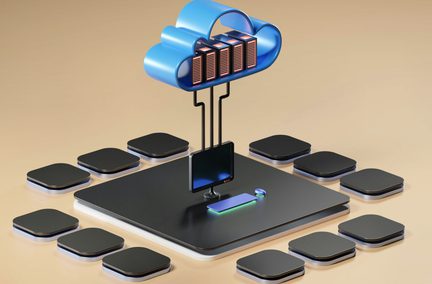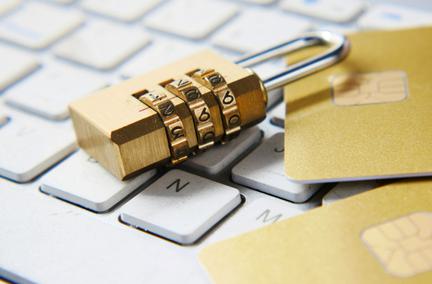Cybersecurity for Small Businesses: Essential Tips and Strategies
Jun 27, 2024 | Cyber Security, Business Internet

Cybersecurity is critical for small and medium-sized businesses (SMBs) in today’s digital age. With the rise of cyberattacks, including ransomware and phishing scams, cybercriminals are increasingly targeting SMBs to exploit vulnerabilities in their security measures. Let's explore key cybersecurity strategies and tools to help small business owners protect sensitive data and maintain robust security.
Understanding Cybersecurity Threats
Small businesses often believe they are too small to be targeted by cybercriminals, but this misconception can lead to severe consequences. Cyber threats such as ransomware attacks, phishing, malware, and social engineering are prevalent and can cause significant damage. For instance, ransomware attacks encrypt business data and demand a ransom for its release, while phishing scams trick employees into revealing sensitive information like credit card details or login credentials.
Some Cybersecurity Stats
According to cybersecurity experts StrongDM, here are the top 10 trends for 2024:
- 46% of all cyber breaches impact businesses with fewer than 1,000 employees.
- 61% of SMBs were the target of a cyberattack in 2021.
- At 18%, malware is the most common type of cyberattack aimed at small businesses.
- 82% of ransomware attacks in 2021 were against companies with fewer than 1,000 employees.
- 37% of companies hit by ransomware had fewer than 100 employees.
- Small businesses receive the highest rate of targeted malicious emails at one in 323.
- Employees of small businesses experience 350% more social engineering attacks than those at larger enterprises.
- 87% of small businesses have customer data that could be compromised in an attack.
- 27% of small businesses with no cybersecurity protections at all collect customers’ credit card info.
- 55% of people in the U.S. would be less likely to continue doing business with companies that are breached.
Key Cybersecurity Measures
Implement Strong Passwords and Multi-Factor Authentication (MFA)
Strong passwords are the first line of defense against unauthorized access. Encourage employees to use complex passwords and change them regularly. Multi-factor authentication (MFA) adds an extra layer of security by requiring a second form of verification, such as a code sent to a mobile device, making it harder for hackers to gain access.
Use Antivirus Software and Firewalls
Antivirus software helps detect and remove malicious software, including viruses, spyware, and malware. Ensure all devices, including laptops and mobile devices, have up-to-date antivirus protection. Configure firewalls to monitor and block suspicious activity, protecting your business data from unauthorized access. Firewalls act as barriers between your internal network and external threats.
Secure Wi-Fi Networks and Use VPNs
Use strong passwords and encryption protocols to ensure the security of your Wi-Fi network. Avoid using default router settings, which are often vulnerable to cyberattacks. Encourage employees to use VPNs, especially when accessing business data remotely. A Virtual Private Network (VPN) encrypts internet connections, protecting sensitive information from being intercepted by cybercriminals.
Regular Software Updates and Patching
Keep all software, including operating systems and applications, updated with the latest security patches. Cybercriminals often exploit vulnerabilities in outdated software to gain access to systems. Enable automatic updates to protect your systems against the latest threats.
Conduct Regular Security Training and Awareness Programs
Educate employees about cybersecurity best practices, such as recognizing phishing emails, avoiding suspicious links, and reporting potential security incidents. Regular training helps build a security-conscious culture within the organization, reducing the risk of human error leading to data breaches.
Develop an Incident Response Plan
Prepare for potential cybersecurity incidents by developing a comprehensive incident response plan. This plan should outline the steps to take in case of a data breach or cyberattack, including how to contain the threat, notify affected parties, and recover data. Regularly review and update the incident response plan to ensure its effectiveness.
Leveraging Cybersecurity Tools and Resources
Endpoint Security Solutions
Endpoint security solutions, such as cloud-based malware protection and anti-virus software, protect individual devices within your network, such as desktops, laptops, and mobile devices. These solutions monitor and respond to threats in real time, ensuring that endpoints are secure.
Data Encryption
Encrypt sensitive data both in transit and at rest to prevent unauthorized access. Encryption ensures that even if data is intercepted, it remains unreadable without the proper decryption key.
Backup Solutions
Regularly back up critical data to prevent data loss in a cyberattack. Store backups in a secure, offsite location, and test them periodically to ensure they can be restored successfully. Backup solutions can include external hard drives, off-site servers, and cloud storage, all of which are in a different physical location from the system being backed up.
Cybersecurity Frameworks and Guidelines
Utilize cybersecurity frameworks and guidelines from reputable organizations such as the National Institute of Standards and Technology (NIST) or the Cybersecurity and Infrastructure Security Agency (CISA). These frameworks provide best practices for managing cybersecurity risks.
Collaborating with IT Experts and External Partners
Hire Skilled IT Staff
Invest in skilled IT professionals either inside the company or from an outside expert agency to manage and enhance your cybersecurity strategy. They can help identify vulnerabilities, implement security measures, and respond to incidents effectively.
Partner with Cybersecurity Firms
Collaborate with cybersecurity firms that specialize in protecting SMBs. These firms offer a range of services, including security assessments, monitoring, and incident response, providing expert support to strengthen your cybersecurity posture.
Button It Up
Cybersecurity is an ongoing process that requires vigilance, education, and the right tools. By understanding the various cyber threats and implementing robust security measures, small business owners can protect their sensitive information and maintain business continuity. Regularly updating security protocols, training employees, and leveraging external resources are essential to building a resilient cybersecurity strategy. With the right approach, SMBs can safeguard their operations against the ever-evolving landscape of cybercrime.
- small business
- cybersecurity







